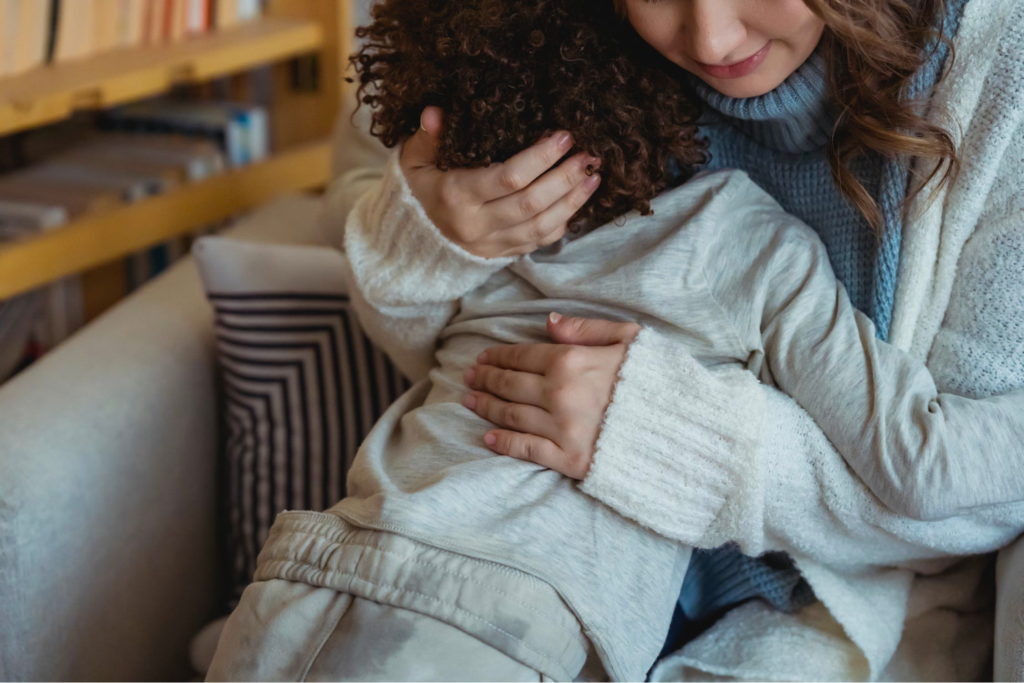
Childhood is the time in life that sets the stage for our social and emotional health as an adult. And June celebrates Children’s Awareness Month which prioritizes their health and wellbeing. This makes it the perfect opportunity to share how we can encourage, support, and educate the children in our life during stressors such as divorce. As such, here are tips to help your kids cope with divorce.
Impact of Divorce on Kids
Of all the worries parents have during a divorce, they are often most concerned with how the kids will cope with the situation. As you likely expect, kids will typically struggle the most during the divorce and the first year or two after as they get used to changes in daily routines and living arrangements. Here’s how divorce may impact your kids:
- They feel angry – This is particularly common among school-aged kids and teens and can stem from feelings of abandonment or loss of control. Their anger may also be directed inward as some kids blame themselves for their parents’ divorce.
- They withdraw socially – Your kids are processing a range of different emotions and worries right now and those unsettling feelings may have them feeling anxious and vulnerable in social situations so they avoid them instead.
- Their grades might suffer – This is more common among teens but can be an issue as early as age six and is often due to feelings of being neglected, sadness, and/or even simply being distracted by all that’s happening due to the divorce.
- Younger kids may regress – They may begin to feel separation anxiety in addition to wetting the bed, sucking their thumb, and/or having temper tantrums again as a result of increased stress as well as difficulty with the transition.
- Change in eating and sleeping patterns – Kids across age groups may experience nightmares, have fears about monsters, or other worries that bring feelings of anxiety at bedtime in addition to stress eating or food avoidance.
- They become depressed – Some kids may be at risk of developing clinical depression and although this is more common in ages 11 and older, any child can be at risk. What’s more, boys are often more at risk of suicidal thoughts than girls according to the American Academy of Pediatrics.
- They engage in risky behaviors – Some kids turn to substance abuse, aggressive or illegal behavior, and/or engage in sex at earlier ages as a way to get attention and/or numb their emotions.
- They face relationship struggles themselves – Being a child of divorce may impact their beliefs about marriage, trust, and/or relationships in general.

Helping Kids Cope with Divorce
The impacts above are not to say that parents in an unhappy or dysfunctional marriage shouldn’t divorce. The reality is that “staying together for the kids” has its own less than stellar impact as well. Rather, what’s most important is that you move forward with an understanding of the impacts which to look for and that you do your best to help your kids healthily cope with divorce using tips that include:
- Don’t Put Your Kids in the Middle – They are the innocent bystanders in the problems between you and your ex. Asking them to choose, having them deliver messages to the other parent, and/or talking poorly about each other will only result in increasing the negative impact of the divorce for them. What’s more, they may pick sides that could alienate your or your ex in their lives.
- Maintain a Healthy Parent-Child Relationship – This is one of the best ways to help kids cope with divorce. Making the effort to spend quality time with your kids, to make sure they feel loved, safe, and secure, and to establish open, honest communication with them is essential. Also, they need to feel heard and their feelings acknowledged.
- Use Consistent Discipline – It may be tempting to spoil kids or to be laxer on rules to try to make up for the stress of a divorce, but structure and routine can be grounding; helping them to feel more safe and secure during a stressful time like this.
- Pay Attention – Yes, you have so many things to contend with during and in the wake of divorce, not the least of which is your own emotions, but it’s essential to pay close attention to your kids right now, particularly tweens and teens who often act out to get a reaction.
- Empower Your Kids – This isn’t the only struggle your kids will face in life. By teaching them problem-solving skills, conflict resolution, and how to manage thoughts, feelings, and behaviors positively, they’ll be less likely to see themselves as helpless now, and later in life.
- Get Professional Support – Not only for yourself, but for your kids, and even as a family. While leaning on family and friends is important, it can be extremely helpful to join a support group with others who ‘get’ what you (and/or your kids) are going through. You may also consider seeking out the help of a therapist or family counselor.
Bonus Tip: Peaceful Co-Parenting Is Key
All of the above tips will be for naught if you and your ex can’t co-parent without being at each other’s throats. Naturally, disagreements will happen, but if they are handled with respect and maturity, it will go such a long way in helping your kids cope with divorce. However, if you and your ex struggle with keeping things peaceful, it might be time to consider mediation to resolve some of your co-parenting issues. In this process, you enlist a neutral third party trained in effective communication strategies to help you negotiate amicably towards an agreement. What’s more, we offer fully virtual coaching and mediation services for added flexibility and convenience – you don’t even have to be in the same room!
To see how our mediation services can help with your divorce or co-parenting, contact our experienced team today for a free consultation.











